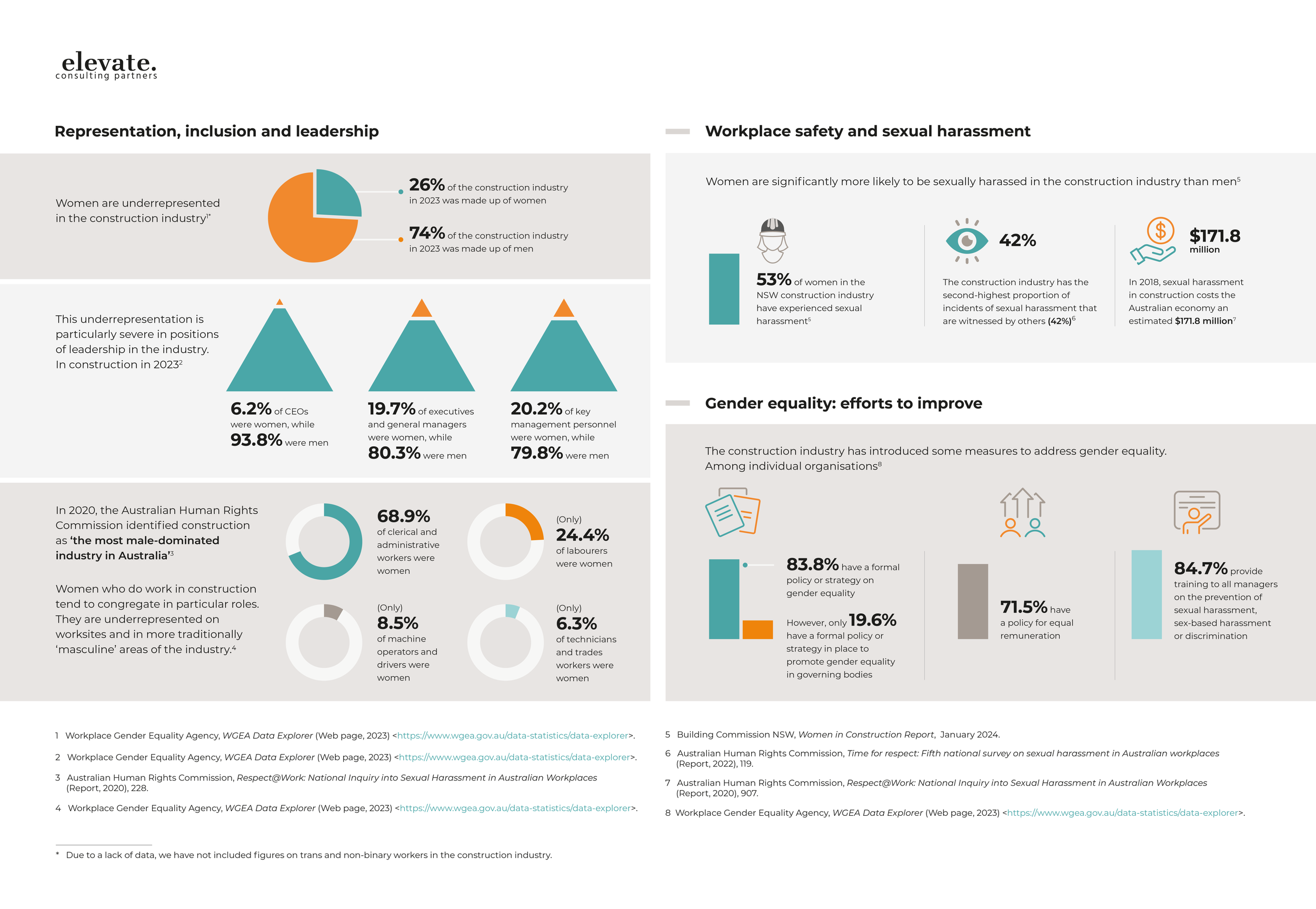Why the positive duty is a blueprint for success in construction
Representation, inclusion and leadership are critical aspects of any thriving organisation. In Australia, the construction industry has significant work to do, but the impact will be overwhelmingly beneficial. The statistics support the case for utilising the positive duty to drive a program beyond compliance and those who lead the way with best practice will have significant cultural and financial benefits.
The blueprint
1. Champion gender representation and leadership: With only 6.2% of CEO roles filled by women, we have a responsibility and an opportunity to rebalance the scales. By actively promoting gender diversity, especially in leadership, we open the door to varied perspectives that can spark innovation and strategic growth.
2. Enhance industry image and talent attraction: An inclusive culture isn't just a moral imperative; it's a competitive edge. In an era where talent is the most valuable currency, showcasing a commitment to diversity can distinguish us as employers of choice for the best in the field.
3. Craft safer workplace environments: A staggering 42% of sexual harassment incidents in construction are witnessed by others, signalling a systemic issue. Implementing the positive duty measures not only mitigates legal risks but fosters a workplace where respect and safety are the cornerstones.
4. Realise economic benefits: The economic repercussions of sexual harassment in construction are undeniable, costing the Australian economy an estimated $171.8 million a year. Implementing the positive duty framework can curtail these losses, ensuring that resources are allocated to innovation and driving growth, rather than incurred costs.
5. Ensure equitable pay and policies: With 71.5% of construction businesses implementing equal remuneration policies, it's clear there’s a movement toward fair pay. However, only 63% of employers undertook a payroll analysis and 58% of employers undertook action as a result of the payroll analysis.
6. Strengthen governance through diversity: Despite 83.8% of organisations having a gender equality policy, only 19.6% extend this to their governing bodies. Representation is key. Leadership structures need to reflect the diversity we aspire to achieve at all levels of our organisations.
7. Augment training to drive cultural shift: An impressive 84.7% of firms offer managers training to prevent harassment. By rolling out Respect@Work interactive workshops through the positive duty framework, we can ensure that this training translates into real-world behavioural shifts, paving the way for a positive change.
In summary
Leadership in the construction industry is not just about what we build, but how we build our workplace community. By embracing the positive duty framework, organisations can create a ripple effect of benefits:
Fostering innovation: Diverse teams lead to more innovative solutions.
Enhancing compliance and risk management: Mitigate legal risks with the positive duty framework to eliminate sexual harassment and sex based discrimination in the workplace.
Improving employee well-being: Create a respectful and safe working environment for all employees.
Boosting industry reputation: Stand out as a progressive, forward-thinking employer.
Leading systemic change: Be the change-maker that sets new industry standards.
The path forward is clear. We must embed a the positive duty not only for compliance but as an approach in our strategic planning, policy development, and organisational culture. It’s not just about building structures; it’s about building a legacy—a more equitable, inclusive, and prosperous future for everyone in the construction industry.
Yours in leadership and progress,
Sarah
P.S. The statistics cited are drawn from Elevate’s infographic above, detailing gender issues within the construction industry, reports cited.

